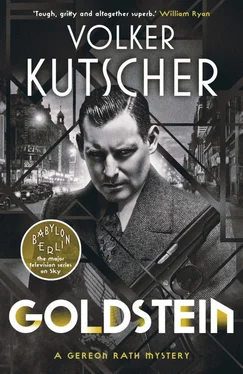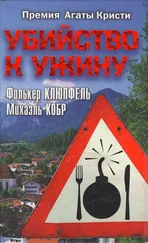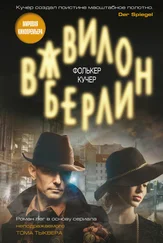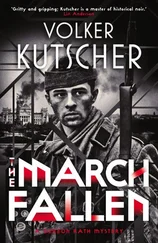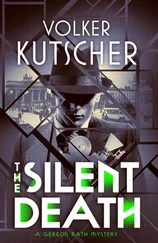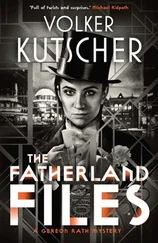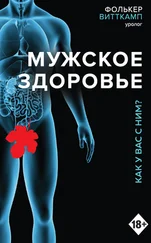He hadn’t expected recognition, but the eyes in that lined face were alert.
The old man opened his mouth and his lips moved. His voice was scarcely audible, but each of the three syllables was plain to hear in the silence of the room. Abraham. They had never met, but the old man recognised him. The eyes that looked at him were already awaiting death.
Rath and Charly entered the Castle through the public entrance and made straight for Records. It reminded him of class trips where he and schoolfriends had roved the girls’ dormitories of youth hostels. Charly was a civilian now, and here he was helping her procure information that ought to have been off-limits. It was easier than he thought.
When he showed his identification, nobody was interested in the woman at his side except the clerk with responsibility for the letters L to R. ‘I know you, don’t I?’ he asked. ‘Are you working in Homicide again?’
Charly had to think on her feet. ‘Temporarily! I have to help the inspector here track down an address. Reinhold is the name.’
The clerk nodded and made for an enormous card index cabinet. ‘D or dt?’
‘Both.’
The man took a huge drawer out of the cupboard and hauled it onto the table. ‘They should all be in here, both ‘d’ and ‘dt’. What’s the good fellow’s name?’
‘We’re looking for a woman,’ Rath said. ‘More precisely: a girl.’
‘A minor? That makes things trickier. Do you see? At the top of the cards you have the names of the heads of household. Wives and children aren’t shown separately, and I’d be willing to bet some of them aren’t registered.’
Rath sighed. Charly, on the other hand, got straight to work.
There were ninety-seven Reinhold families in Berlin. If you counted those that spelled their name with a ‘dt’, over a hundred.
‘And we’re supposed to find a girl called Alex among that lot,’ Rath said, but Charly was already looking through the first card.
They found five Reinholds and one Reinholdt who had registered either an Alexa, an Alexandra or an Alexia. ‘There’s no way you can be sure that’s all of them,’ Rath said. ‘Do you want to visit every Reinhold family in Berlin?’
Charly was now leafing through index cards, and beginning to sort them in piles.
‘What are you doing?’ Rath asked.
‘I think she’s from the East, Friedrichshain or Lichtenberg. We should start with those addresses.’
There were still around a dozen. Rath thought she was joking when Charly suggested visiting them all today. ‘It’s already half past six,’ he protested. ‘People are eating their dinner, and in a few hours they’ll be in their beds.’
Charly’s frosty gaze nipped his opposition in the bud. Rath sighed, pulled out his pencil and began transferring the first addresses from the card to his notebook. ‘OK,’ he said, ‘but let’s split up. We’ll be quicker that way.’
Charly smiled at him, and Rath realised, not for the first time, that he’d do anything for that smile. Canvassing addresses was a cinch.
Outside the hospital Goldstein faced an unexpectedly fierce wind that cut through to his core, but decided against a taxi. Too restless to let himself flop onto the cushion of a vehicle, he walked. Walking always helped. He took out a Camel and lit it from behind his upturned collar.
The old man had the eyes of someone who knew he was about to die, but refused to let it affect him. How many people failed to recognise when their time had come and, if they did, couldn’t accept it, clinging to their lives until the end? Most people simply didn’t bargain on death, and when, inevitably, it came, their only response was surprise at the shocking revelation that it was all over.
At Badstrasse, behind the restaurant he had sat in earlier, the road led down to a perfectly straight little stream. He paused on the bridge, took a few drags on his cigarette and flung it into the dirty water. There was still a lot of activity on the street. He put his hands in his pockets and followed the flow of pedestrians.
A welcoming white ‘U’ shone in the night, above an elegant, modern brick building. Looking at the route map he saw that the next train was heading south. There was no queue and an escalator led below the ground. He allowed it to carry him down before checking behind. A figure in a black hat stepped on at the top and, for a moment, he thought his mind was playing tricks. The man stood on the stairs, gliding down at the same, monotonous pace as everyone else, an old Jew who reminded him of his father, whose hair was also white by the end. It wasn’t so unusual a sight, what with a Jewish hospital nearby, but the man looked like a spectre, a dybbuk, the ghost of Nathan Goldstein returned to haunt his son.
On the platform, he lost sight of him and was tempted to put the experience down to his imagination, when the figure appeared again, floating down the escalator to fall into a short, mincing tread that bore an eerie resemblance to Nathan Goldstein’s gait. His father had walked just like that over Williamsburg Bridge to Greenberg’s clothing factory on the Lower East Side. The old man was reminiscent of his dead father in many ways except one: Nathan Goldstein would never have taken the train. He was too tight, or simply too poor.
In the middle of the platform the black hat came to a halt and to Goldstein he seemed like a man out of time among the advertising signs, electric lights and people waiting for their trains.
Four men in brown were laughing and talking far too loudly, their faces reddened with alcohol. They had followed the old man down the escalator. A passenger with a bandage on his face who must also have come from the hospital pointedly turned his back on them.
They wore uniform shirts the colour of an unhealthy bout of diarrhoea, military style caps, also in brown, with red brassards on their left arms. At first Goldstein thought they were Communists, until he saw the black cross against the white circle, a cross with hooks, a symbol Goldstein had seen a few times in Berlin without remembering where. The old man seemed to recognise the symbol and the uniforms. Discreetly he distanced himself from the four men, moving slowly and inconspicuously – no mincing now – to the opposite end of the platform. Others waiting had also registered the newcomers, but no one wanted to let it show. Instead they remained as unobtrusive and indifferent as possible.
The brownshirts, oblivious to the change in atmosphere, pushed their way past. You could smell the drink on them even in the stale underground air. ‘Well now, what have we here?’
Their laughter trickled out like the last drop of rainwater in a gully; as did all conversation on the platform. ‘Is someone lost? I thought this was an Aryan platform!’
The rest of the passengers stared either at their newspapers or their feet. The old man gave up trying to be invisible.
‘Should we show the poor man the way?’
It didn’t sound like the brownshirt was being a good Boy Scout. The old man lapsed into his mincing walk, back towards the escalator at the other end of the platform.
‘Hey, old timer! We mean you, stay where you are!’ He didn’t turn around. ‘Hey Jew! Stand still when Germans speak to you.’
The old man reached the escalator, climbing the moving steps one by one until he disappeared from Goldstein’s field of vision. The brownshirts followed.
He seemed to be the only one who had seen the incident; everyone else continued looking at their newspapers or staring at the ground. Only when the train arrived did they raise their eyes. The doors opened, and they climbed aboard. No one got out. The train wouldn’t depart for another few minutes. He looked at the open doors and then at the escalator, which continued to roll upwards.
Читать дальше
